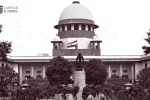High Court Grants Bail in POCSO Case, Citing Failure to Produce Victim for Recording Statement

Date: May 12, 2023
In a significant development, the High Court of Jammu & Kashmir and Ladakh granted bail to an accused in a case arising out of the Protection of Children from Sexual Offences Act, 2012 (POCSO Act). The judgment, delivered by Hon’ble Justice Sanjay Dhar, highlighted the failure of the prosecution to produce the victim before the trial court for recording her statement.
The case involved charges under sections 363 and 109 of the Indian Penal Code (IPC) and Section 8 of the POCSO Act. The accused, Ravi Kumar, had been in custody since April 2020, and the trial had been pending for a significant duration. The court noted that despite its earlier directions to ensure the presence of the victim, the prosecution had failed to produce her before the trial court.
Justice Sanjay Dhar referred to Section 436-A of the Code of Criminal Procedure, which sets the maximum period for which an undertrial prisoner can be detained. The provision states that an undertrial prisoner cannot be held for a period exceeding one-half of the maximum punishment specified for the offense. Considering that the accused had already spent more than three years in custody, exceeding the prescribed limit, the court held that his statutory right to bail could not be denied.
The court emphasized that the victim’s non-appearance should not be a reason to defeat the petitioner’s right to bail. It observed that the trial delay was not due to the conduct of the accused, but rather the victim’s avoidance of testifying. Taking into account the circumstances, the court ruled that the petitioner was entitled to bail.
The judgment imposed certain conditions on the grant of bail, including the furnishing of a personal bond, appearance before the trial court on every hearing, restrictions on leaving the territorial limits without prior permission, non-intimidation of witnesses, and refraining from engaging in similar activities.
This judgment underscores the significance of timely production of witnesses and victims in criminal trials. It serves as a reminder that the right to bail cannot be indefinitely deferred due to the non-appearance of a witness, especially when the accused has already spent a substantial period in custody.
The judgment is expected to have implications on future bail applications in similar cases and may prompt a renewed focus on expediting trials and ensuring the presence of witnesses to uphold the principles of justice and fairness in the legal system.
Date: May 12, 2023
Ravi Kumar vs Union Territory of J&K





